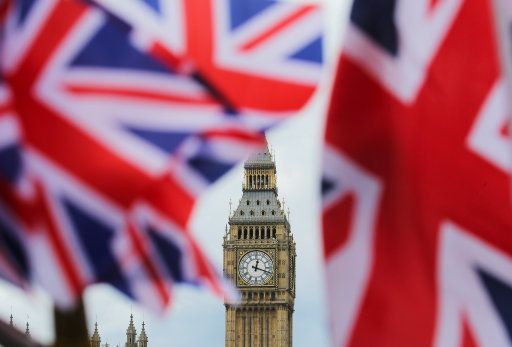The word “Brexit” has caused problems even as the act of Brexit has been stifled.The success of the mindlessly circular and self-defeating mantra “Brexit means Brexit” was the first sign that the mystical energy of the word would come to overpower the actual practice of leaving the European Union.
But worse than the riddle-like quality of the term is the deceptiveness of its component parts—Britain and exit. Especially the first part. As we know, Britain has not yet exited. The primary reason for this is a misunderstanding over what Britain is. Much of the discourse in London—whether in parliament or the media, among Remainers and Leavers alike—rests on the assumption of a coherent and unitary nation state named Britain. This entity is ascribed with qualities both negative and positive. Britain has always had problems with European integration, we are told. But Britain punched above its weight thanks to EU membership, it is also argued.
These sentiments may be true. But they usually ignore the single most distinctive thing about the state: that it is a union of nations with institutions and identities that are profoundly distinct from one another. No other EU member state fields multiple national football teams. None have multiple national churches. For anyone who thinks such matters of national identity are irrelevant to high politics, I have a movie I’d like you to watch: it’s called The Last Five Years.
It is now nearly half a decade since Scotland voted to remain in the United Kingdom. Having had roles in the UK government campaigns in both the Scottish referendum in 2014, and the EU referendum in 2016, I am often struck by how rarely the two are discussed alongside one another. The currents of identity and nationhood that inform both—in different ways—are linked because they share this island. But it is extraordinary how UK elites have become so blind to the ways their politics are shaped by the existence of separate national realities and psychologies inside the state they think they run.
If the Scottish National Party had not had a post-independence referendum surge in electoral support, it would not have been able to liquidate Scottish Labour in the 2015 UK general election. And David Cameron would not have been able to subtly appeal to English nationalism in that same election, with posters portraying UK Labour leader Ed Miliband as the puppet of Scottish nationalists Alex Salmond and Nicola Sturgeon in a putative “coalition of chaos.” How bleakly ironic that warning seems now given the rolling operatic chaos that has engulfed Westminster ever since.
Last month Sturgeon showed a capacity for careful management of her own party’s constitutional ultras that has eluded Theresa May. She announced a series of caveated moves towards a second independence referendum but stressed “flexibility” and hinted at changing her position if the UK remained in the EU after all. Her strategic positioning is clear, and devastatingly rational when compared to that of the UK government. It is to exert pressure for a softer Brexit, or no Brexit, while accruing capital to hold a second independence referendum in the event of a harder Brexit.
Yet to say that Scottish nationalists—or indeed Irish ones—are seeking to make capital from Brexit chaos is to miss the point. Brexit is unarguably an assertion of British nationhood, but mostly by English voters, many of whom either conflate Britishness with Englishness, or identify as singularly English. If a British nation still exists, it is hard to argue that its will is being expressed through anything other than an English mandate.
If, as now seems probable, Boris Johnson is elected leader of the Conservative Party later this year, it will be the most manifest expression of this contradiction. Boris’s shtick may have helped him reach non-Tory voters in 2016—as pundits have always enjoyed arguing—but these voters were almost entirely in England. He is a liability in Scotland, plainly loathed by the successful Tory leader there Ruth Davidson and already being cited by Sturgeon as a possible predicate for a second independence referendum.
And then there is Northern Ireland. Which is not part of Britain, but in the British state on the island of Ireland—and where a journalist was murdered this year because of an ideology which both hates that contradiction and wants to end it using violence. The Good Friday Agreement, the international treaty designed to manage the complexity of Northern Ireland—and formalise its binational nature—is the most stubborn barrier to British exit. Most Brexiters had not considered that Britain is trammelled and compromised, not by Brussels—but by itself.
It should be no surprise that the populist right in the UK is increasingly indistinguishable from English nationalism. Two decades after devolution to Scotland, Wales and Northern Ireland, and the unique concession of dual nationality to the latter, the UK political class struggles to conceive of what a multinational state means.
The problem with Brexit isn’t just figuring how to exit, but understanding what Britain is.
The primary reason for Brexit’s failure? A profound misconception about what “Britain” really is
The UK political class struggles to conceive of what a multinational state actually means
May 21, 2019

Photo: Michael Kappeler/DPA/PA Images











